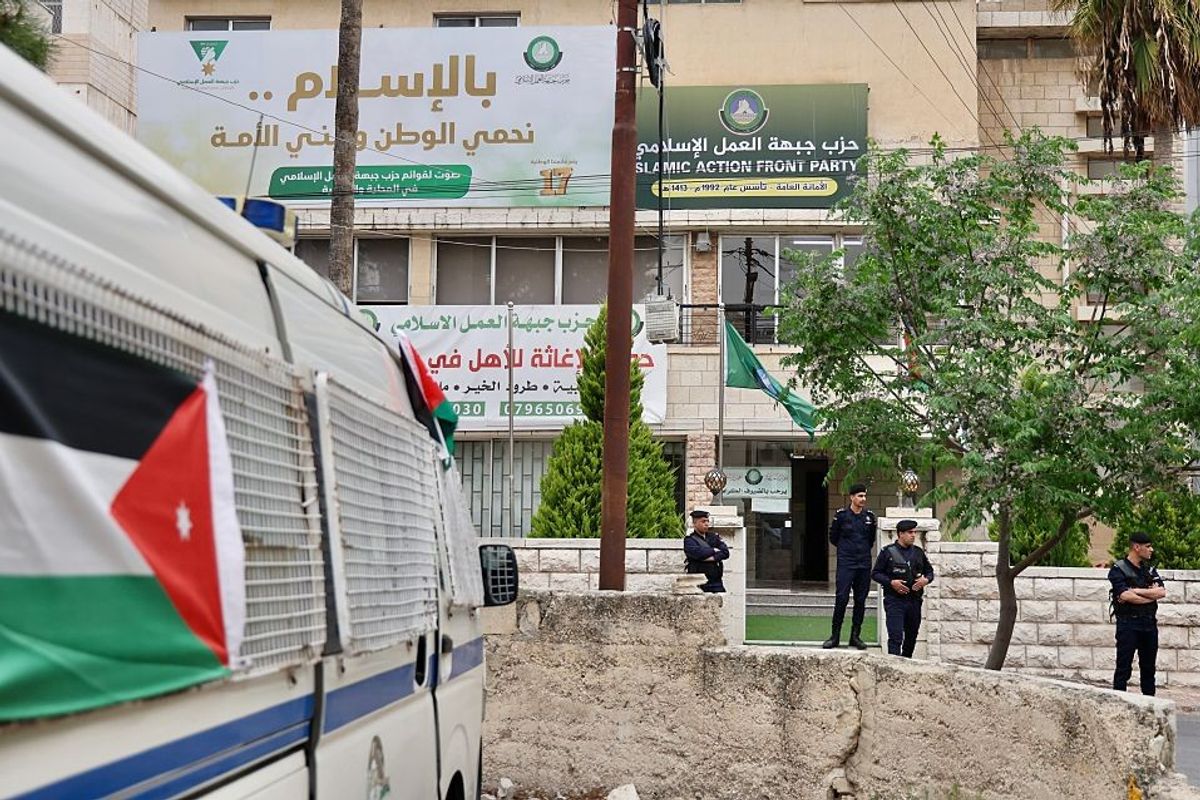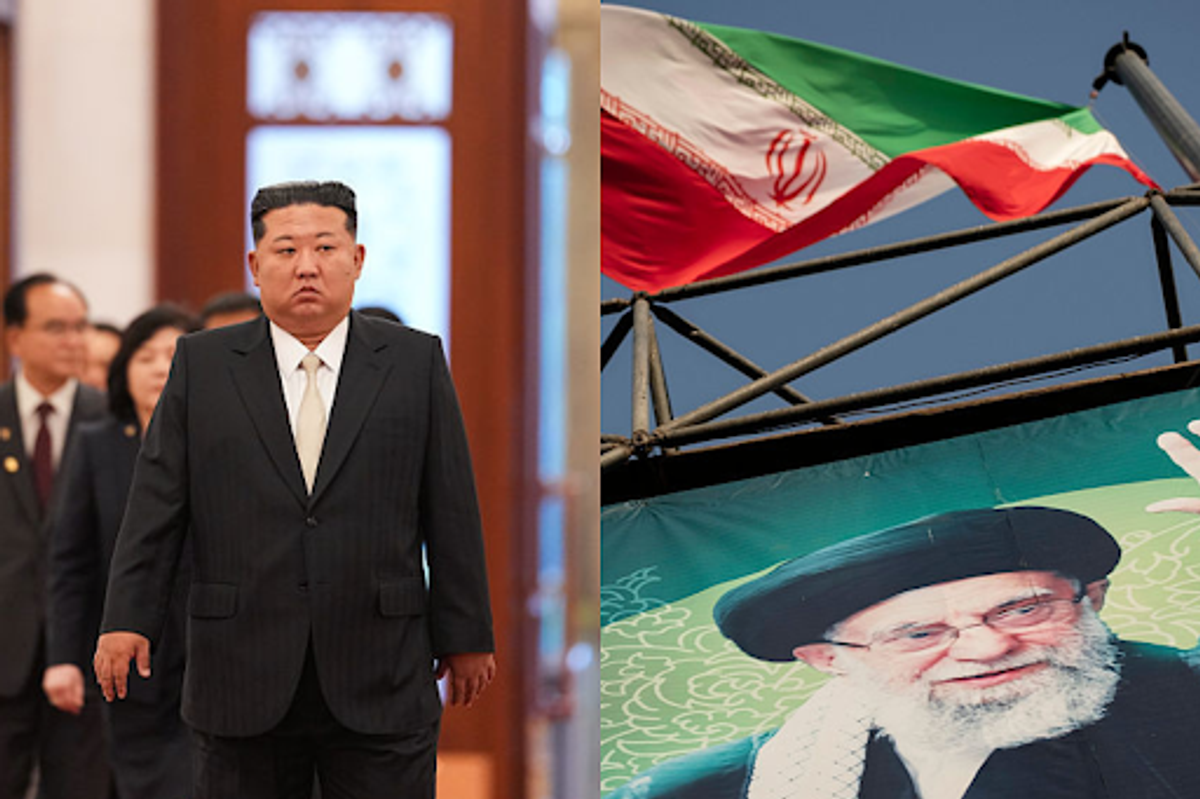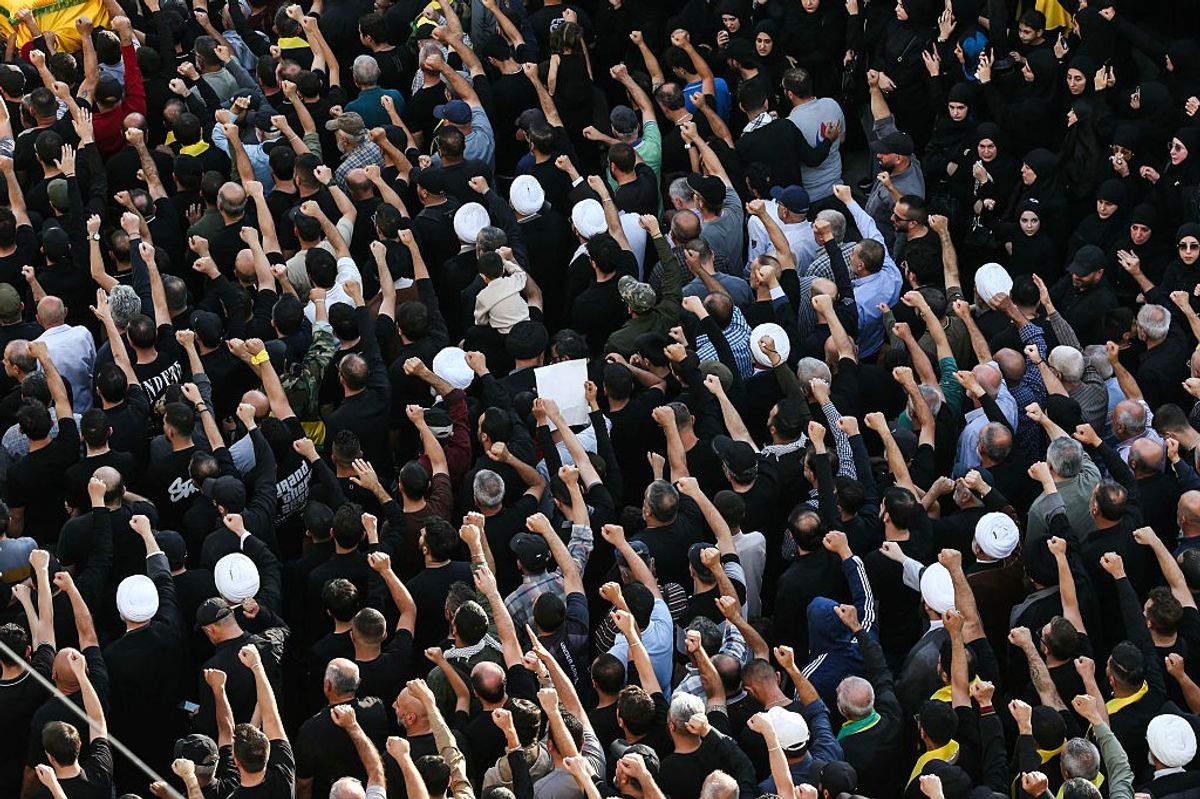BOTTOM LINE UP FRONT — Might a Gaza peace agreement bring benefit beyond the besieged Gaza Strip? That’s the tantalizing hope expressed by several U.S. officials and Middle East negotiators involved in the long and painstaking process to produce a ceasefire-for-hostages deal between Israel and Hamas – a deal which, as of late Thursday, still awaited the Israeli government’s final approval.
For the people of Gaza, what matters is the deal itself, and its provisions for a six-week ceasefire, during which Israeli forces would retreat to a small buffer zone along the Gaza Strip’s border with Israel; a significant influx of badly-needed humanitarian aid; and a return home for tens of thousands of displaced Palestinians in Gaza – at least for those whose homes are still standing. For Israelis, the agreement holds the promise of the return of hostages still held in Gaza, and a return home for Israeli soldiers who have been waging a difficult war inside the territory.
But in a series of interviews with The Cipher Brief, experts suggested that beyond Gaza itself, the agreement – assuming it is implemented successfully – may bring positive ripple effects for the broader Middle East. The possibilities range from greater security for Israel, a decrease in violence in the Palestinian West Bank, an Israeli-Saudi rapprochement and even a new agreement between Israel and the Palestinians.
Long shots? Maybe. But as Cipher Brief expert Emile Nakhleh said, the agreement opens the aperture for hope. "These possibilities might seem pollyannish at the moment," Nakhleh said, "but if you recall, the Camp David Accords that were engineered by President [Jimmy] Carter seemed an impossible dream back then. And those difficult negotiations resulted in peace agreements with Egypt and, later on, with Jordan that have persisted to this day."
THE CONTEXT
- President Joe Biden announced the ceasefire deal on Wednesday. He said Phase One of the agreement will include “a full and complete ceasefire” and the release of hostages held by Hamas. Qatari Prime Minister Mohammed bin Abdulrahman Al Thani said the ceasefire would take effect on Sunday.
- Specific terms of the ceasefire deal include the following: in the initial six-week phase, Israeli forces in Gaza are to withdraw to the east, and 33 hostages in Gaza and an unspecified number of Palestinian prisoners in Israel will be released. A senior U.S. official told reporters on Wednesday that the first hostages will be freed Sunday, and that American hostages will be among them. Displaced Palestinians in Gaza will be able to return to all areas of the territory. Gaza will then begin to receive a surge of humanitarian aid.
- President Biden said the deal that was agreed to “is the ceasefire agreement I introduced last spring.” A senior U.S. official said regional developments had helped bring the parties to agreement - including the killing of Hamas leader Yahya Sinwar last October, the overall weakening of Hezbollah and Iran, and last month's rebellion that overthrew Bashar al-Assad in Syria.
- In a seemingly unprecedented exercise of diplomacy by two administrations, the outgoing Biden administration and incoming Trump team were involved in the final stages of the negotiations. Trump’s pick for Middle East envoy Steve Witkoff participated in those final days of talks. “In these past few days, we’ve been speaking as one team,” Biden said.
- As of late Thursday, Israel’s cabinet still hadn’t approved the deal and delayed a vote on the matter to Friday. Israeli Prime Minister Benjamin Netanyahu blamed the delay on Hamas creating a “last-minute crisis.” Hamas officials denied this and said they backed the agreement. Secretary of State Antony Blinken said that while negotiators were “tying up that loose end” the ceasefire should still take effect Sunday as planned.
The Cipher Brief spoke with former Centcom Commander Gen. Frank McKenzie, former U.S. Ambassador to Oman Gary Grappo, and Dr. Emile Nakhleh, a founding director of the CIA’s Political Islam Strategic Analysis Program.
Their comments have been edited for length and clarity.
THE EXPERTS
General McKenzie: I think Hamas has got to be pretty satisfied with where they are right now. Much of their military echelon leadership has been destroyed, but they still survive in Gaza. They have been beaten up pretty badly, and a lot of their elite fighters are gone, but it doesn't take elite fighters to actually maintain control. You just need thugs on the street with guns. And that could very well be what we will see. So the path forward seems to be one where [Hamas] will still retain a presence in Gaza.
On the other side of the equation, the Israelis are getting something very big. They're getting the hostages back – if that happens. That's a huge win for them.
I'm pessimistic about the Hamas-Israeli relationship, but on the other hand, Israel has done a remarkable job across the region against Lebanese Hezbollah and also against Iran. Israel's ability to take away Hezbollah's senior leadership, and their ability to reduce the number of precision missiles that can fire deep into Israel, has been a significant achievement, as has their ability to not only take out the senior leaders, but the mid-level leaders through the campaign with the beepers and other communication systems. Lebanese Hezbollah is on their back foot. They are not able to do that thing that Iran needed them to do, which was maintain the capability to strike with great force against Israeli population centers. The main Iranian-sponsored threat to Israel, the use of large-scale missile attacks from Lebanese Hezbollah, that risk seems to have declined considerably, along with the military command and control of Hezbollah, as well as the missiles themselves.
The other component of this is Iran itself. Iran is now as gravely weakened as it has been in my professional experience. Their air defense system has been proven to be ineffective. In fact, they are pretty much naked before another Israeli attack. Should the Israelis opt to go back and revisit Iran, the Iranians know this. And their own capabilities, their own two large missile attacks on Israel, have largely been unsuccessful.
And the collapse of Bashar Assad's Syria is simply the coda, if you will, to a disastrous year for Iran. [Assad] collapsed because the three pillars that propped up his tottering regime, Lebanese Hezbollah, Iran and Russia were no longer able to do so. So there have been vast changes in the landscape of the region. And that is actually something the Israelis can draw strength about going forward.
At least in the short to mid-term, there's breathing space for Israel. And of course, what they're going to have to decide, and I think the great challenge for the U.S., particularly as a new administration comes into office, is how are we going to take advantage of this remarkable opportunity, an opportunity to do some things in the region that could lead to long-term stability.
Iran is at the root of most of these problems. And if the first principle of Iranian statecraft is regime preservation, the second one is the destruction of the state of Israel. We need to back them off that if we can. And I know these are aspirational goals, but these are things right now that Iran may be willing to talk about in order to preserve the regime. We just need to be careful if we do get into negotiations with Iran. The Iranians are far cleverer negotiators than they are fighters, and they tend to come out pretty well in negotiations, particularly against us, whereas they don't necessarily perform particularly well on the battlefield. But we have an opportunity here. I guess that's the long and the short of it. We have an opportunity.
Whatever happens with a ceasefire in the short term, an Israeli-Saudi rapprochement and normalization is inevitable, and it's going to proceed. It may proceed in fits and starts. It may not move as smoothly as people thought. But I believe this is an inevitable thing that's going to happen, driven by the manifest threat of Iran, which every nation in the region recognizes.
Nakhleh: The deal is fraught with wild cards that could derail it, but if it holds – and I would give that a 60-40 probability – and extends beyond the 42 days, it could result in several positive regional developments.
First and foremost, it would go a long way towards ending, or at least diminishing, the suffering of the Palestinian people, and will allow a major surge in humanitarian aid into Gaza. That then could pave the way for the reconstruction of Gaza, with funds from Gulf Arab states and the international community. People rightly focus on food and medicine, and the reconstruction effort will be critical as well.
Politically, this deal could pave the way for a new structure of governance in Gaza. We do not know exactly what this will look like, but the possibilities would include the Palestinian Authority, some remnants of Hamas, and perhaps some non-Palestinian component, from other Arab countries, helping in some way. This in turn could create an environment that will be far more conducive for talks about at least a pathway towards a Palestinian state, and for talks about the future of the West Bank and continued Israeli occupation of that territory. Remember that the West Bank has also seen greater violence recently than it has in years – it has just been overshadowed by the death and destruction in Gaza.
At the same time, we may see the beginnings of a process of expanded rapprochement between Israel and more Arab states, to include Saudi Arabia. Remember that the idea of an Israeli-Saudi diplomatic breakthrough was in play prior to the October 7 attacks against Israel.
And given all the other recent developments in the region, a truce in Gaza may bring, for the moment at least, an end to regional wars, and therefore a calming of the borders between Israel and its neighbors – Lebanon, Syria, Jordan, and Egypt. In the same vein, It could end the Houthi attacks on international shipping through Bab al-Mandab. The Houthis had said from the beginning that they were acting to support Hamas in its war with Israel; now presumably that war will be quiet.
It is also worth noting that a true peace in Gaza could result in a more centrist Israeli government, with a greater confidence to at least consider new agreements with the Palestinians without being shackled by extremist political parties in Israel. If that were to happen, we might actually see an environment in which Israeli and Palestinian representatives, together with representatives from other countries, much like those that preceded the Oslo Accords, would begin fresh conversations on the future of the two peoples living together between the Jordan River and the Mediterranean Sea in peace and security.
These possibilities might seem pollyannish at the moment – and again, we don’t know if the Gaza deal will hold. But if you recall, the Camp David Accords that were engineered by President Carter seemed an impossible dream back then. And those difficult negotiations resulted in peace agreements with Egypt and, later on, with Jordan that have persisted to this day.
Ambassador Grappo: This agreement will obviously moot a lot of the criticism directed toward Israel, both from within the region and internationally, asssuming the ceasefire goes into effect and greater amounts of aid are able to enter Gaza. And I think a lot of Arab countries – the UAE has already spoken publicly about it – want to participate in that, and play a role in that. And the extent to which more aid can flow and ameliorate this humanitarian crisis, the more it will diminish the pressure on Israel, and the attention of people in the Middle East will be focused elsewhere, whether it’s Lebanon, whether it’s Syria, or on the big problem, and that is the conflict between Iran and Israel.
The Biden administration is to be congratulated for its tenacity in working with the parties to achieve this ceasefire, and the agreement also gives the incoming Trump administration a running start on advancing the process to conclude a permanent end to the Gaza War. They’re going to need it, because much heavy lifting remains to be done. Talks on phase two would begin the first week of February. Those negotiations will focus on the almost entire withdrawal of IDF forces from Gaza, the release of remaining Israeli hostages held by Hamas and other Palestinian factions in Gaza and an uncertain number of Palestinian prisoners held in Israeli prisons, and the final elements of the permanent ceasefire. Those discussions are likely to prove the thorniest and encounter considerable resistance within both camps. Hamas needs the permanent ceasefire to rebuild and reconstitute itself, especially its combat forces that have been decimated by the IDF. Israel, however, seeks the neutralization of Hamas as a threat to the Israeli state and people and as a governing institution in Gaza. In the view of many within Israel, especially Netanyahu and his coalition’s right wing faction, that job is not done and can’t be completed under a permanent ceasefire.
If agreement on these issues cannot be reached, then the war is very likely to resume. So the Trump administration negotiators face a burdensome task ahead. It will require considerable pressure on Bibi Netanyahu by Donald Trump himself. But it might also be helpful for the U.S. to reach out to Arab allies to encourage them to engage with Hamas, to urge them to work toward compromise.
Finally, all of this will be done in the context of Iran and the administration’s policy and approach to the Islamic Republic. Given Iran’s very vulnerable state at present, one other avenue the U.S. and others may wish to pursue is Tehran. Leaning on Tehran to apply its own pressure on Hamas may potentially be productive, however risky outreach to Iran might be and unreliable the Iranians may ultimately prove. Iran is more interested in rebuilding their flagging axis of resistance, not reining them in.
Whatever happens, the Middle East is likely to play a major part in the incoming administration’s foreign policy, competing with so many other pressing issues for the president and his foreign policy team’s attention.
Read more expert-driven national security insights, perspective and analysis in The Cipher Brief because National Security is Everyone’s Business.














